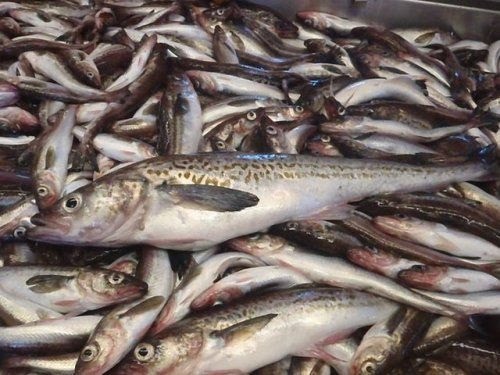Why FG Plans To Ban Importation Of Essential Staple Food Next Year May Suffer A Set Back
Despite being the largest producer of fish in Africa, Nigeria has spent about N500 billion on fish import in the last 11 months, it was learnt.
Findings revealed that the higher cost of imported fish products since 2015 and the 2019 devaluation of the naira are yet to create the necessary opportunity for domestic fish production to compete with imported fish.
Therefore, the plan by the Federal Government to ban the importation of this essential staple food next year, industry players said, may suffer a set back.
For instance, between January and June this year, National Bureau of Statistics (NBS) noted that blue whiting specie worth N62.4 billion was imported, herrings imports amount to N35.53 billion and mackerel fish were imported for N25.75 billion.
It added that between January and March, this year, the biggest import was recorded; when blue whiting fishes worth N27.23 billion were imported from Russia alone.
The amount of fish imported into the country between July and November this year, sources at the Federal Ministry of Finance said, worth over N200 billion.
“This amount is far below the worth of the fish that were smuggled into the country from the neighbouring countries in the last 10 months,”
The country, findings revealed, has a record of 2.5million metirc tonnes of fish deficit, a situation that is affecting protein intake among the poor people in the north and south.
Sources at the Nigerian Ports Authority (NPA) said, fish demand in the country has grown faster than supply, resulting in an increase in the import share of consumption.
“Fish demand in Nigeria has far outpaced supply as the import share rose from 16 percent in 1970 to 39 percent by 2017. But little is known about who is consuming the imports: rural versus urban, rich versus poor.
“Fish is among the most important animal-sourced foods in Nigeria and other African countries and is crucial in combatting malnutrition.
The country, findings have shown, has imported over N1trillion ($2.06billion) fish from major nine countries in the last two years.
The imports increased by 38 per cent or $480.2million from S789.74million to $1.27billion between 2019 and 2020.
Finding from the Nigerian Ports Authority (NPA)’s shipping position revealed that six vessels visited the Lagos Port Complex to offload 27, 836 metric tonnes of fish.
At the port terminal were Green Karmoy laden with 4,200 Tonnes; Green Freezer, 4,100 tonnes; Nova Florida, 4,200 tonnes; Belbek, 3,162.69tonnes;Frio Las Palmas, 6,609.24tonnes and Kano Reefer, 5,565 tonnes.
According to International Trade Statistic (ITS), the major supplier of the seafood are Russia, Norway, Netherlands, Iceland, Poland, Chile, Ireland, Mauritania and Japan.
Last year, Rusia supplied $253.6million fish to Nigeria; Netherlands, $212.02; Chile, $138.7million; Iceland, $100,2million; Ireland, $57.05million; Norway, $92.3million; Poland,$33million and Mauritania, $53.3million.
According to ITS data, Japan has overtaken Norway by 73.87 per cent since 2018 on fish export to the country.
The data revealed that Japan’s fish exports to Nigeria rose from $1.04 million or 2.14 per cent in 2016 to $48.62 million (97.8 per cent) in 2018. Its export to Nigeria in 2017 was $28.57 million
It was gathered that Pacific mackerel from Japan, which was $850 per tonne is 43 per cent cheaper than the prices of Norwegian mackerel specie sold at $1,500 per tonne.





















